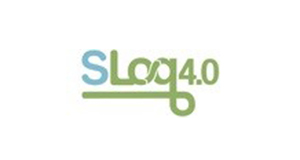Logistics is the function responsible for the transport and storage of tangible and intangible goods.
Sector
Logistics industry, Sustainability
Topic
Logistics is the function responsible for the transport and storage of tangible and intangible goods. From a broader perspective, the logistics chain is carried out according to the following main activities: procurement, transport, receiving goods, warehousing, stock control, order processing, handling of goods in the warehouse transport to customer, physical distribution, recycling, returns and waste disposal. The relationship between environmental sustainability and logistics is a relationship of direct dependence. There is growing concern about air pollution, water pollution, energy consumption, urban development and waste disposal. Logistics does not have a good reputation for environmental protection, demonstrated by CO2 emissions in the value chain, use of green field sites for warehouses, calls for new transportation infrastructure building, use of packaging, etc. In parallel, e-commerce and consumption were booming even before the pandemic prompted a spike in the number of products ordered online and delivered around the world.
Target Audience
The main target group of the project is the undergraduate students of departments that have logistics related courses in their higher education. The proposed project is open to synergies with partners active in different departments such as logistics, business administration, and industrial engineering, etc
Consortium
Poznan University of Technology, Poland (Lead organisation) ECQA, Austria; Gaziantep University, Türkiye; ValueDo, Italy; University of Maribor, Slovenia; Universidade de Aveiro, Portugal; Zerynth Boiled Plate English, Italy
Project Output
The most relevant concrete results of the project will be:
- a set of Design Principles, developed after having conducted a detailed training need analysis, to be intended as the principles on which to build the multidisciplinary curriculum (topics, learning outcomes, duration, etc.).
- a training course, whose expected architecture is the following: Module 1: Logistics 4.0 in smart society; Module 2: Sustainability in Logistics 4.0; Module 3: IIoT: adopting 4.0 for green logistics; Module 4: Green challenge.
 |
The European Commission's support for the production of this publication does not constitute an endorsement of the contents, which reflect the views only of the authors, and the Commission cannot be held responsible for any use which may be made of the information contained therein. |

